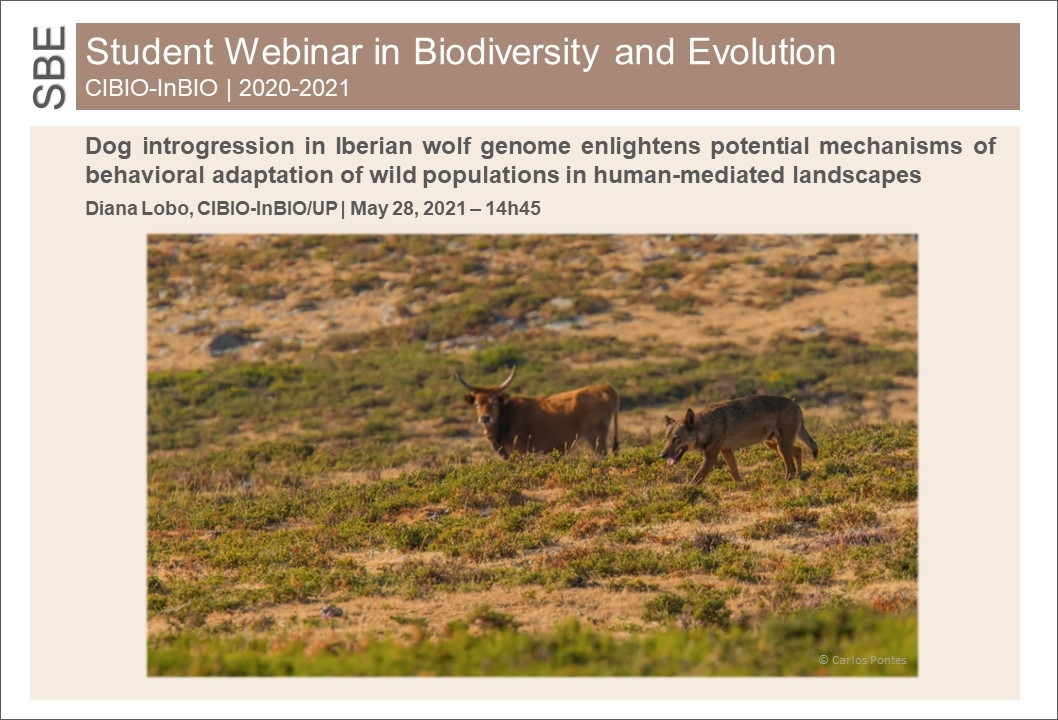Dog introgression in Iberian wolf genome enlightens potential mechanisms of behavioral adaptation of wild populations in human-mediated landscapes
28 May 2021 - Diana Lobo, CIBIO-InBIO/UP | 14h45

STUDENT WEBINAR IN BIODIVERSITY AND EVOLUTION
Remarkable examples of adaptation to human-modified landscapes are illustrated by the grey wolf (Canis lupus) in regions as the Iberian Peninsula. Unlike the majority of Central European populations, Iberian wolves were able to survive with intense human persecution, co-existing for thousands of years with livestock and agriculture. In my PhD, I’m trying to understand the role of hybridization with domestic dog in shaping the evolutionary trajectory and adaptation of Iberian wolves to human-dominated landscapes. We hypothesize that historical hybridization has enriched the genetic legacy of Iberian wolves with dog genetic variants, which were selected during domestication to suit a human-changed environment. To test this hypothesis, we applied a multidisciplinary approach combining population genomics with whole-genome and brain gene expression data.
We found evidence of adaptive introgression of a "dog block” in Iberian wolf chromosome 2, not present in any other wolf population. This introgressed block contains genes whose functions relate to several cognitive abilities (memory, learning skills and behavioral fear response), that appear to be under positive selection in dogs and Iberian wolves. Furthermore, the expression of these genes in the brain of Iberian wolves not only is significantly different compared to other wolves, as also closely resembled that of dogs.
In this seminar, I will present these results and our views about the mechanisms that seem to be shaping the behavioral adaptation of Iberian wolves to human-modified landscapes.
Diana Lobo is graduated in Applied Biology from the University of Minho and holds a MSc in Biodiversity, Genetics and Evolution from the Faculty of Sciences of the University of Porto. Diana is currently in her last year of the BIODIV PhD Program, working under the supervision of Dr. Raquel Godinho (CIBIO-InBIO/UP) and Dr. John Archer (CIBIO-InBIO), and is part of the ECOGEN group at CIBIO-InBIO.
[Host: Raquel Godinho, Ecogenomics - ECOGEN]